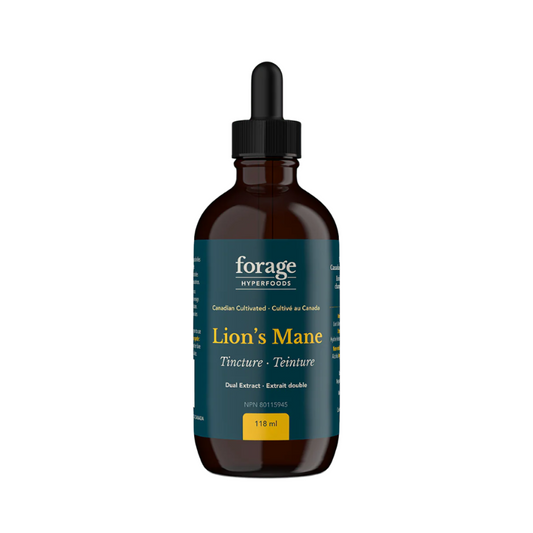
Adaptogens: What Are They and Do They Really Work?
Share
A big work deadline is coming up, you haven’t been sleeping well, and your cat is sick. Oh, and you’re out of gas. Hello, stress! While it might be tempting to turn to a glass (or three) of wine to soothe your nerves, there’s a much healthier, effective way to deal with the pressure: adaptogens. In this article, we’ll discuss the benefits of adaptogens, as well as take a closer look at how medicinal mushrooms fit into this space.
What are adaptogens?
Adaptogens are a group of plants, herbs, roots, and fungi that are said to improve your body’s resilience to and tolerance of stress of any kind, whether it’s physical or emotional. As the name suggests, they adapt to your needs and promote balance. If you’re feeling fatigued, they provide you with energy. Conversely, if you’re feeling wound up, they help you relax.
While adaptogens have recently blown up in popularity, they have been used for hundreds of years in Ayurvedic and Chinese healing and were used in Europe as early as World War II. The term “adaptogen” was officially coined in 1940 by a scientist from the USSR named N. Lazarev. Russian soldiers needed more resilience and adaptogens offered a good solution to help them focus and cope with stress.
How do adaptogens work?
While more research needs to be done to determine exactly how adaptogens work, researchers have gathered that adaptogens influence the hypothalamic-pituitary-adrenal axis (HPA), which is responsible for controlling the body’s stress responses during times of stress. By doing so, adaptogens enhance the body’s resistance to stress, normalize stress hormones like cortisol, and promote homeostasis.
Are adaptogens effective?
It might be hard to believe that something as naturally occurring as herbs, roots, and fungi can aid in reducing stress, however, studies confirm that adaptogens are indeed effective. A 2010 study concluded that adaptogens have significant beneficial and specific effects on stress-induced symptoms. The study showed that the most convincing evidence of their efficacy was related to their effects on cognitive function, mental performance, and depression.
Which plants are considered to be adaptogens?
More than 70 plants, herbs, roots, and fungi are considered to be adaptogens, each said to have its own specific action. Adaptogens include herbs such as rhodiola, ashwagandha, and holy basil, roots such as maca, astragalus, and licorice, and certain mushrooms.
A look at adaptogenic mushrooms
Let’s take a closer look at adaptogenic mushrooms. Just like certain herbs and roots, certain mushrooms can increase the body’s resistance to stress, help promote normal functioning during times of stress, and protect against stress-related damage.
To clarify, the terms “medicinal” and “adaptogenic” aren’t the same thing. Many mushrooms have medicinal effects, such as being anti-inflammatory and immune boosting, but are not adaptogenic. Only a few mushrooms have adaptogenic qualities including:
- Reishi: Also called “the mushroom of immortality,” reishi is known to have a calming effect that is helpful for reducing anxiety, protecting against stress-induced damage, and promoting restful sleep.
- Cordyceps: This powerful fungus has been shown to fight stress, help balance hormones, and provide energy.
- Lion’s Mane: Known as “the smart mushroom,” lion’s mane is used to improve brain health, including memory, cognition, and focus.
- Chaga: Dubbed “the king of medicinal mushrooms, chaga helps control stress, reduce anxiety, and support a strong immune system.
How to incorporate adaptogens into your routine
It’s easier than ever to incorporate these healing powerhouses into your daily regimen. Many companies offer adaptogens in tincture, powder, or tea form, making it simple to consume them when needed. At Forage Hyperfoods, we offer Reishi, Chaga, and Lion’s Mane as alcohol and alcohol-free tinctures.
The takeaway
Adaptogens can offer substantial stress-reducing benefits. However, they aren’t a cure-all. Think of them as another tool in your stress-reduction kit along with regular exercise, restorative sleep, practicing mindfulness, and eating a healthy diet.
Also remember that consistency is key. A once-in-a-blue-moon addition of Reishi to your smoothie won’t do the trick. It may take a few weeks of regularly taking an adaptogen to notice benefits, but when you do, we’re confident you’ll be impressed with this incredible class of plants.



